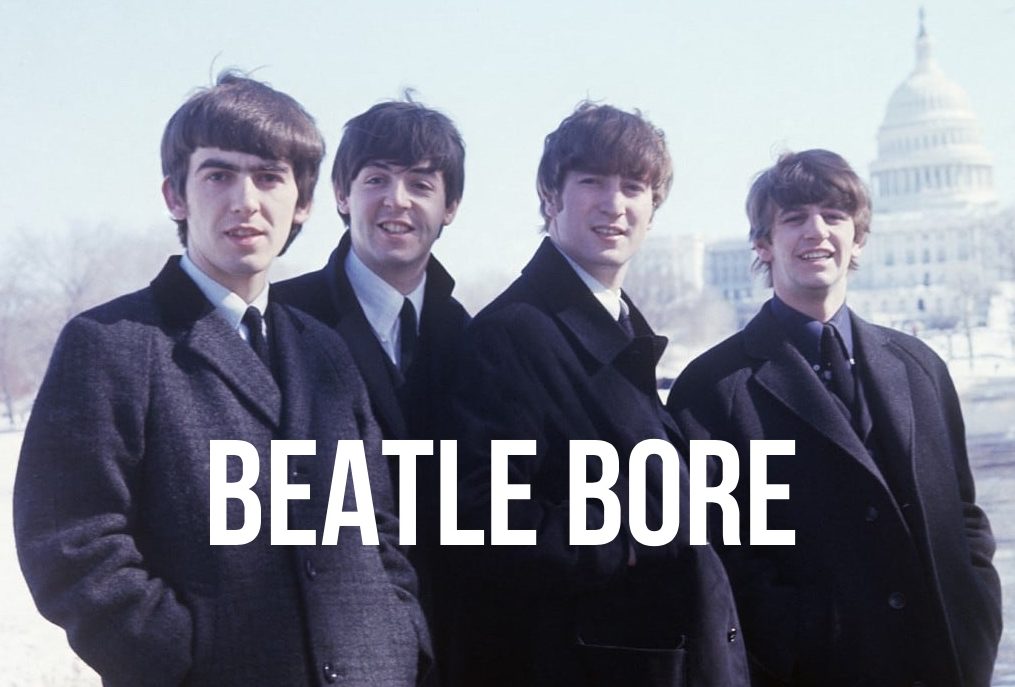Although it was published in May 2016, I’ve only just got around to reading this book. This is partly because I received it as a Christmas present, but also because I had a few reservations to begin with. Philip Norman is well known for his previous anti-McCartney sentiment, and as such I expected the worst from his new biography. But I decided to give it a chance.

In his introduction, Norman readily admits that he once considered John Lennon to be “three quarters of the Beatles”, and Paul McCartney “a self-satisfied lightweight.” It was this view that coloured the pages of Shout!, his 1981 book on the band, and was widely criticised. He also mentions the infamous poem he wrote about Paul, published in the Sunday Times magazine, a scathing attack which he now admits was “horrifically tasteless.” He attributes his long-held grudge against Paul to jealousy, which comes across as incredibly petty: “If I’m honest, all those years I’d spent wishing to be him had left me feeling in some obscure way that I needed to get my own back.” This biography can therefore be described as an attempt to put things right, intended as a companion volume to John Lennon: The Life (2009). Surprisingly, Paul gave Norman his “tacit approval” despite being fully aware of what he had previously written about him.
Beatles fans will of course be more than familiar with the story of Paul’s early years; his childhood in Liverpool, the influence of his father Jim on his musical sensibilities, the impact of his mother Mary’s death when he was just fourteen and how it led him to seek solace in music, how he came to befriend both John and George and became part of what would eventually be the biggest band on the planet. The details of The Beatles’ incredible career will also be familiar, but of particular interest here is the relationship between Paul and John, both as songwriters and as people.
For all of Norman’s previous criticisms of Paul, he clearly goes out of his way to make amends. The clichéd view of the Lennon-McCartney partnership is that John was the edgy, experimental one and Paul was the safe, cosy one. Most people now know this to be a gross generalisation, which Norman confirms, particularly when detailing Paul’s interest in the avant-garde and how it made its way into The Beatles’ music. One example he points to is ‘Tomorrow Never Knows’, one of John’s great songs, which was so ahead of its time and inspired by his reading of The Psychedelic Experience. What most Beatles fans didn’t realise was that it was Paul who had first recommended the book to John. It is one of many stories used to illustrate the fact that John and Paul needed each other in equal measures.
The other important relationships in Paul’s life — particularly with women — are also examined. He and actress Jane Asher, with whom he lived for five years, were one of the most glamorous celebrity couples of the ’60s. Then came his extraordinary marriage to Linda Eastman, the love of his life, who was such a powerful and positive force for him both personally and creatively. Their life together lasted almost three decades and only ended with Linda’s untimely death in 1998. His disastrous second marriage to Heather Mills, which most of us would rather forget, is also covered extensively. In fact, the whole account of the divorce case is probably a little too in-depth. Fortunately, though, he has since found happiness again with Nancy Shevell, who is mentioned towards the end of the book.
Given Norman’s previous stance, you might expect him to be critical of Paul’s post-Beatles work, but he is surprisingly diplomatic about it all. Sometimes a little too diplomatic; he refrains from offering an in-depth assessment of the music, the way other biographers have, particularly the more recent material. It’s almost as if he’s reluctant to appear overly critical given his history with Paul. However, at times Norman is still annoyingly dismissive of George and Ringo when they are mentioned (something else he was criticised for with Shout!). At one stage he implies that George was not renowned for having a sense of humour (which, as Beatles fans know, is nonsense) and elsewhere claims that Ringo’s drumming was not missed during his absence from a recording session (which is also nonsense).
So is this the definitive biography of Paul McCartney? I’m not so sure. It’s certainly better than others I’ve read. But I feel there could have been more detail on the music, which could easily have filled some of the space taken up by the overlong account of his divorce from Heather Mills. The book does reveal much about Paul as an artist and person: driven, passionate about his craft, but still a little bit insecure at times. None of this will be new to those who have studied the man endlessly, but casual fans will certainly learn everything they need to know from it. Although in his epilogue Norman confirms his newfound respect and admiration for Paul, there is one final frustration: having attended Paul’s homecoming gig in Liverpool in 2015, he leaves before the end…
